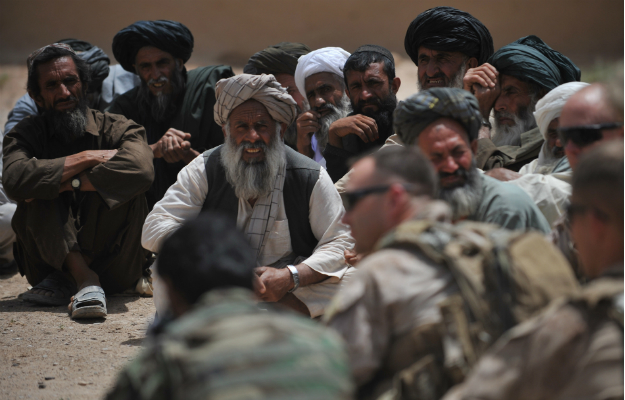 Nice piece in Foreign Policy about what it takes to do nation-building on a light footprint. Title is, "Wanted: Ph.D.s Who Can Win a Bar Fight." Reminds me of my "Pistol Packing Peace Corps" line from Blueprint.
Nice piece in Foreign Policy about what it takes to do nation-building on a light footprint. Title is, "Wanted: Ph.D.s Who Can Win a Bar Fight." Reminds me of my "Pistol Packing Peace Corps" line from Blueprint.
The start:
Looming budget cuts, ground forces worn down by years of repeated deployments, and a range of ever evolving security challenges from Mali to Libya and Yemen are quickly making "light footprint" military interventions a central part of American strategy. Instead of "nation building" with large, traditional military formations, civilian policymakers are increasingly opting for a discrete combination of air power, special operators, intelligence agents, indigenous armed groups, and contractors, often leveraging relationships with allies and enabling partner militaries to take more active roles.
Despite the relative appeal of these less costly forms of military intervention, the light footprint is no panacea. Like any policy option, the strategy has risks, costs and benefits that make it ideally suited for certain security challenges and disastrous for others. Moreover, recent media coverage of drone strikes and SEAL raids may also distort public perceptions, creating a bin Laden effect -- the notion of military action as sterile, instantaneous, and pinprick accurate. Yet nighttime raids are only the proverbial tip of the iceberg: the most visible part of a deeper, longer-term strategy that takes many years to develop, cannot be grown after a crisis, and relies heavily on human intelligence networks, the training of local security forces, and close collaboration with diplomats and development workers. For these smaller-scale interventions to be an effective instrument of national policy, civilian and military leaders at all levels should make a concerted effort to understand not only their strategic uses and limitations, but also the ways the current defense bureaucracy can undermine their success.
The most critical resource requirement in smaller interventions is human capital: talented, adaptable professionals who are not only fluent in language, culture, politics, and interpersonal relationships, but also willing to deploy for long periods and operate with little guidance. Smaller-scale missions mean less redundancy, less room for error, and more responsibility for every person in the field.
Worth reading. Guy relates his own experiences in field.
Then the depressing ending:
The looming defense budget cuts only complicate matters, as they are likely to greatly intensify the Pentagon's natural institutional tendency to protect large, high-tech, expensive programs, while "squishy," esoteric programs such as language lessons, culture immersion, broadening experiences, advanced education, advisory units, and other human capital investments -- all invaluable to smaller missions -- have little hope of being prioritized. Without a concerted, sustained effort by military and civilian leaders at all levels, the state of affairs within the defense establishment may come to resemble the parable of the blind men and the elephant, with doctrine writers, strategists, operators, and budget analysts all drawing different lessons from the past decade of war and telling a different story about how the institution should change to remain relevant. Unless speeches and policy documents are backed up by culture, processes, doctrine, and strategic clarity, the light footprint will likely remain a niche capability confined to a few fringe military units, not an effective instrument of national policy.
Sad but true. We prefer our toys.